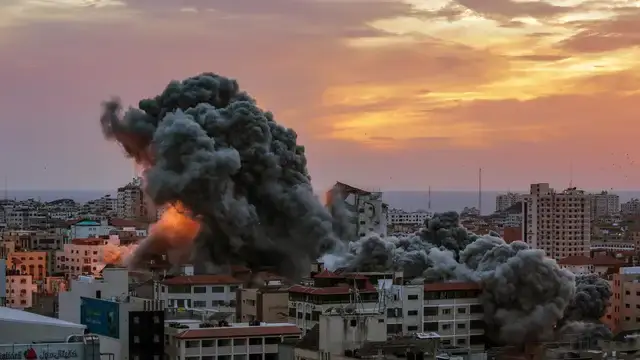Palestinians Return to Northern Gaza After Months of Displacement
Displaced Palestinians Begin Emotional Journeys Home Amid Fragile Ceasefire and Ongoing Challenges in Gaza.

- Palestinians Return to Northern Gaza After Years Away
For the first time since the war in Gaza erupted, tens of thousands of displaced Palestinians are making their way back to the northern part of the Strip. Crossing the Netzarim Corridor, many are finally reuniting with their loved ones after enduring months of separation and hardship.
Israel’s military announced that crossings at al-Rashid Street would be open to pedestrians starting at 7 a.m. (05:00 GMT), while Salah al-Din Street would allow vehicles from 9 a.m. (07:00 GMT). This announcement marks a significant moment in the ongoing ceasefire agreement.
- Emotional Reunions Mark a Long-Awaited Return
Ahmad Adas, a displaced Palestinian, shared his excitement with reporters. “We want to go see our family. I want to see my mother and father. We haven’t seen them for 15 months. It’s a long time,” he said, carrying several bags as he walked toward his hometown.
Another returnee, Mohammed Adas, 19, expressed his relief and joy. “I haven’t seen my family for a year and a half. We’re tired and just want to be home in Gaza City. We’re not coming back here,” he said with a beaming smile.
For many, the return is a deeply emotional experience. One displaced Palestinian described it as a moment of resurrection: “It is as if we have been resurrected and are now entering paradise. This is a festive day for us. We, the Palestinians, are the rightful owners of this land. Our resolve cannot be dented.”
- International Reactions to Palestinian Displacement
The issue of Palestinian displacement remains a contentious topic on the global stage. Germany’s Foreign Ministry recently rejected former U.S. President Donald Trump’s proposal to resettle Palestinians in Jordan and Egypt.
“The Palestinian population must not be expelled from Gaza,” a German spokesperson said, emphasizing that Gaza should not be permanently occupied or recolonized by Israel. Both Jordan and Egypt, home to millions of Palestinians already, have categorically rejected such proposals, which have been condemned as attempts at ethnic cleansing.
- Challenges for UNRWA Amid Israeli Restrictions
The United Nations Relief and Works Agency (UNRWA) has voiced concerns about the Israeli government’s impending restrictions on its operations in Gaza. Sam Rose, UNRWA’s director of planning, explained the dire implications of the proposed ban, set to take effect at the end of January.
“We are two-thirds of the primary healthcare providers in Gaza and handle 60 percent of emergency shelter responses,” Rose said. “If this ban is fully implemented, we will not be able to bring supplies in. Replicating our scale of operations is simply impossible.”
Rose warned that the ban could severely undermine relief efforts and the broader ceasefire agreement, adding to the suffering of Gaza’s already strained population.
- Rising Tensions in Lebanon and the West Bank
In the occupied West Bank, Israeli forces have carried out attacks on the Nur Shams camp, killing two Palestinians and wounding three others, according to the Palestinian Health Ministry. The violence highlights the fragile nature of the ceasefire agreements and the ongoing volatility in the region.
Meanwhile, in southern Lebanon, the death toll from recent Israeli airstrikes has risen to 24, with 134 others wounded, including 12 children. Lebanese authorities report that Israeli forces attacked civilians attempting to return to their villages under a ceasefire agreement, which has now been extended until February 18.
- Espionage Accusations Heighten Regional Tensions
Adding to the regional instability, Israeli authorities have arrested two military reservists on suspicion of spying for Iran. According to reports, one suspect allegedly shared classified information about the Iron Dome defense system in exchange for $3,500. This incident has raised concerns over internal security and the potential impact on Israel’s military operations.
- The Path Forward for Gaza
As Palestinians return to northern Gaza, the hope for stability remains overshadowed by challenges. The ongoing ceasefire is a critical step toward rebuilding lives and communities, but the situation on the ground underscores the need for a lasting resolution. International cooperation and support will be essential to ensure that displaced families can rebuild their homes and futures in peace.
This moment of reunion and hope is a testament to the resilience of the Palestinian people, who continue to stand firm despite the immense challenges they face.



